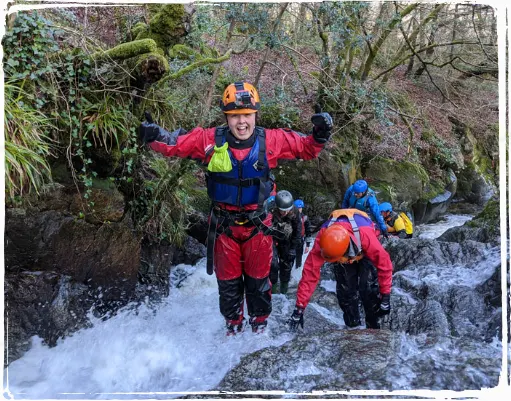LOCATION
East Barnby
DURATION
5 Days| 4 Nights
ACCOMMODATION
From 20 to 120 people

discovering waterways
Complete a journey from Source to Sea on the river Esk. We’ll go beck scrambling near the source, canoeing down the mature part of the river, into the sea, and then explore the seashore and all it’s wonder.
Itinerary
This is an example of an activity package and not a certainty, the Outdoor Education team will build you a specific programme of activities based on conversations with you.
Students go out on activity in groups of 12 so, depending on the number of students on adventure with us – and weather conditions, the order of activities may vary.
MONDAY
Arrive and unpack

Source Discovery
Evening Activity
TUESDAY

River Study

River Scramble
Evening Activity
WEDNESDAY

Canoeing

Night Sky
THURSDAY

Seashore Explore
Evening Activity
FRIDAY


Pack and depart

LOCATION: East Barnby
DURATION: 5 Days | 4 Nights
ACCOMMODATION: From 12 to 120 people
discovering waterways
Complete a journey from Source to Sea on the river Esk. We’ll go beck scrambling near the source, canoeing down the mature part of the river, into the sea, and then explore the seashore and all it’s wonder.
Itinerary
The combination of activities in the following itinerary have been carefully chosen to bring out the best of real outdoor education adventure, for students in Years 8 to 10, in Autumn/Winter. Please let us know when making your booking if you would like any of the activates changed or if you have any specific curriculum themes you would like us to focus on. Students go out on activity in groups of 12 so, depending on the number of students on adventure with us – and weather conditions, the order of activities may vary.
MONDAY

Arrive and Unpack | Source Discovery | Evening Activity
TUESDAY

River Study | River Scramble | Evening Activity
WEDNESDAY

Canoeing | Night Sky
THURSDAY

Seashore Explore | Evening Activity
FRIDAY

Orienteering | Pack and Depart | Great Times to Remember
What’s Included?
Once you arrive at our outdoor education centres, everything is included:
Visiting teachers stay free
For every 12 students booked, one visiting teacher stays free of charge + one more extra for the whole group.
All specialist equipment
All sporting equipment and adventure specific helmets and harnesses.
Accommodation
Accommodation for the duration of the visit.
Food
Three meals a day, except for day of arrival and departure.
Bedding and linen
Pillows, sheets, duvets, and blankets are all provided.
All specialist clothing
Waterproofs, wellies and wetsuits, when required. Ideally students should bring their own wellies, but we have plenty on hand to lend.
Transport
Once at the centre, all transport to and from adventure activities is provided.
Experienced, full-time, outdoor teachers and tutors
Each group of 12 students is led by a fully qualified and experienced outdoor tutor.
Curriculum Links
A meaningful residential visit isn’t only about having fun, making new friends, building confidence, learning to work together as a team, and developing an appreciation for our natural environment… it’s also about weaving interesting content into outdoor activities that enrich the curriculum which benefits students when they are back in the classroom.
Source Discovery
Geography: Physical
Learning about the upper course of a river, students can start off by hypothesising the characteristics of the source. When the source is reached, they can then explore the differences between expectations and how the river actually begins.
Geography: OS Maps
OS Maps will be introduced and students will be shown the different features and how to use them. With this knowledge, students will use the maps to pinpoint where a river starts.
River Study
Fieldwork:
River studies will be undertaken in a few different locations and the data collected will be compared on stream profile, water flow rates, and living creatures found in those areas.
Geography: OS Maps
OS Maps will be used to identify and navigate to suitable locations for fieldwork. To do this, students will first be introduced to the features of OS maps and taught how to translate these features into what an area will actually look like.
Science: Ecosystems
During the river study kick samples can be taken to survey aquatic organisms at different locations. Links can then be made to the creatures’ place in the wider ecosystem.
River Scramble
Geography: Weather
Students will learn to consider the weather and the effects it will have on the activity and the venue. They will learn about forecasting, where to find a forecast, and where our weather comes from.
Science: Geology
The group will learn to identify rock types and the effects of erosion in the forming of gorges and valleys.
Geography: Rivers
In a youthful part of the river, students can learn all about its formation, characteristics, and erosion that is taking place today changing the landscape.
Canoeing
Design and Technology
Canoeists can learn all about the design of the canoe and how materials have developed over time. They can also learn how balance and trim effects the performance of the craft.
History: Local
Local history and the influence of the waterway can be explored in detail. Students can learn about what the areas close to the waterway were used for, now and in the past, and how this has changed over time.
Geography
The challenge of natural hazards is part of the GCSE curriculum. Whilst canoeing, students can spend time talking about these hazards and how they have shaped our environment. The shape of river valleys, for example, changes as the river flows downstream – there is no better way to explore this than from in a canoe.
PE
Following the GCSE P.E curriculum, we can develop students skills to help them perform core paddling skills/techniques in increasingly demanding and progressive drills in interesting and fun environments.
Seashore Explore
Geography: Physical
KS3:Students will learn how the coastal environment came to be in its current state, through processes including weathering, erosion, tectonics, and human influences. Then, discussions will be had on how it may change in the future and its features in the environment.
KS4: Coastal features such as headlands, caves, and bars can be explored, and the processes behind their creation introduced and explained. Processes include erosion through hydraulic power, abrasion and attrition, transportation and deposition.
Science: Biology and Ecosystems
KS3: Students will be taught how creatures in the coastal environment are connected – how they fit into the ecosystem and how they are part of a food web. Discussions will be had on how organisms are affected by their environment and how toxic materials can cause issues.
KS4: Understanding producers, consumers, decomposers, the food chain, the food web, and nutrient cycling, students can learn about the concept of interrelationships within a natural coastal environment – the balance between components and the impact on the ecosystem of changing one component.
Science: Forces
Students will learn about the forces that create and maintain the surf and swell.
Art
Students can use the outdoors to develop their creativity by using natural materials to create artwork or observing naturally occurring art and recording it.
Orienteering
Geography
KS3: Students can be introduced to orienteering maps, their key features, scales, and uses. They will then be taught how to start using these as an important tool in navigation and identifying the surrounding area to them.
KS4: Taking orienteering to the next level, students will work in a more open and mountainous environment. They will learn to read contour lines and what has created and shaped the land, whilst searching for markers in a more competitive setting.
Maths: Ratio and proportions
Scales can be used from the maps to measure the distance of the course to be completed. Times can then be estimated based on speed. The legs of the course can be broken down into sections, and ratios applied to the times or distance of each leg.
P.E.
Orienteering can be a competitive sport and students will have the opportunity to learn how to take part in a team, and as individuals, using tactics, map knowledge, and learning to pace themselves to complete the course.
Resources
Everything you need to know about booking and staying with Outdoor Education North Yorkshire.
What’s Included?
Once you arrive at our outdoor education centres, everything is included:
All specialist equipment
Food and accommodation
Bedding and linen
Waterproofs
Wellies if required
Ideally students should being their own wellies, but we have plenty on hand to lend.
Transport to and from activities once at the centre
Experienced, full-time, outdoor teachers and tutors
Each group of 12 students is led by a fully qualified and experienced outdoor tutor.
Visiting teachers stay free
For every 12 students on adventure, 1 visiting teacher stays free of charge, plus 1 extra for the whole group.
Resources
Everything you need to know about booking and staying with Outdoor Education North Yorkshire.
Programme Curriculum Links
A meaningful residential visit isn’t only about having fun, making new friends, building confidence, learning to work together as a team, and developing an appreciation for our natural environment… it’s also about weaving interesting content into outdoor activities that enrich the curriculum which benefits students when they are back in the classroom.
Source Discovery
Geography: Physical
Learning about the upper course of a river, students can start off by hypothesising the characteristics of the source. When the source is reached, they can then explore the differences between expectations and how the river actually begins.
Geography: OS Maps
OS Maps will be introduced and students will be shown the different features and how to use them. With this knowledge, students will use the maps to pinpoint where a river starts.
River Study
Fieldwork:
River studies will be undertaken in a few different locations and the data collected will be compared on stream profile, water flow rates, and living creatures found in those areas.
Geography: OS Maps
OS Maps will be used to identify and navigate to suitable locations for fieldwork. To do this, students will first be introduced to the features of OS maps and taught how to translate these features into what an area will actually look like.
Science: Ecosystems
During the river study kick samples can be taken to survey aquatic organisms at different locations. Links can then be made to the creatures’ place in the wider ecosystem.
River Scramble
Geography: Weather
Students will learn to consider the weather and the effects it will have on the activity and the venue. They will learn about forecasting, where to find a forecast, and where our weather comes from.
Science: Geology
The group will learn to identify rock types and the effects of erosion in the forming of gorges and valleys.
Geography: Rivers
In a youthful part of the river, students can learn all about its formation, characteristics, and erosion that is taking place today changing the landscape.
Canoeing
Design and Technology
Canoeists can learn all about the design of the canoe and how materials have developed over time. They can also learn how balance and trim effects the performance of the craft.
History: Local
Local history and the influence of the waterway can be explored in detail. Students can learn about what the areas close to the waterway were used for, now and in the past, and how this has changed over time.
Geography
The challenge of natural hazards is part of the GCSE curriculum. Whilst canoeing, students can spend time talking about these hazards and how they have shaped our environment. The shape of river valleys, for example, changes as the river flows downstream – there is no better way to explore this than from in a canoe.
PE
Following the GCSE P.E curriculum, we can develop students skills to help them perform core paddling skills/techniques in increasingly demanding and progressive drills in interesting and fun environments.
Seashore Explore
Geography: Physical
KS3:Students will learn how the coastal environment came to be in its current state, through processes including weathering, erosion, tectonics, and human influences. Then, discussions will be had on how it may change in the future and its features in the environment.
KS4: Coastal features such as headlands, caves, and bars can be explored, and the processes behind their creation introduced and explained. Processes include erosion through hydraulic power, abrasion and attrition, transportation and deposition.
Science: Biology and Ecosystems
KS3: Students will be taught how creatures in the coastal environment are connected – how they fit into the ecosystem and how they are part of a food web. Discussions will be had on how organisms are affected by their environment and how toxic materials can cause issues.
KS4: Understanding producers, consumers, decomposers, the food chain, the food web, and nutrient cycling, students can learn about the concept of interrelationships within a natural coastal environment – the balance between components and the impact on the ecosystem of changing one component.
Science: Forces
Students will learn about the forces that create and maintain the surf and swell.
Art
Students can use the outdoors to develop their creativity by using natural materials to create artwork or observing naturally occurring art and recording it.
Orienteering
Geography
KS3: Students can be introduced to orienteering maps, their key features, scales, and uses. They will then be taught how to start using these as an important tool in navigation and identifying the surrounding area to them.
KS4: Taking orienteering to the next level, students will work in a more open and mountainous environment. They will learn to read contour lines and what has created and shaped the land, whilst searching for markers in a more competitive setting.
Maths: Ratio and proportions
Scales can be used from the maps to measure the distance of the course to be completed. Times can then be estimated based on speed. The legs of the course can be broken down into sections, and ratios applied to the times or distance of each leg.
P.E.
Orienteering can be a competitive sport and students will have the opportunity to learn how to take part in a team, and as individuals, using tactics, map knowledge, and learning to pace themselves to complete the course.
Learning Outcomes
PERSONAL GROWTH
Young people will grow by taking on new challenges using the ‘challenge by choice’ ethos and familiar models such as Growth Mindset and Comfort Zones. They will build confidence, independence, and an understanding of themselves and what they are capable of along the way.
SOCIAL SKILLS
Using outdoor activities as a tool, our tutors will guide students through the process of learning to support each other and work together as a team. Students will learn the importance of respecting each individual’s abilities and understand how their actions and manner of communication can have an effect on each other’s feelings.
ENVIRONMENTAL AWARENESS
Students will go on a real adventure in real environments where they will be immersed in the North York Moors National Park and learn all about the natural world around them, what it can offer them, and how important it is that we care for it.
Travel Times
Middlesbrough
40 Minutes
York
1 Hour 15 Minutes
Newcastle upon Tyne
1 Hour 30 Minutes
Harrogate
1 Hour 30 Minutes
Sheffield
2 Hours 20 Minutes
Middlesbrough
40 Minutes
York
1 Hour 15 Minutes
Newcastle upon Tyne
1 Hour 30 Minutes
Harrogate
1 Hour 30 Minutes
Sheffield
2 Hours 20 Minutes